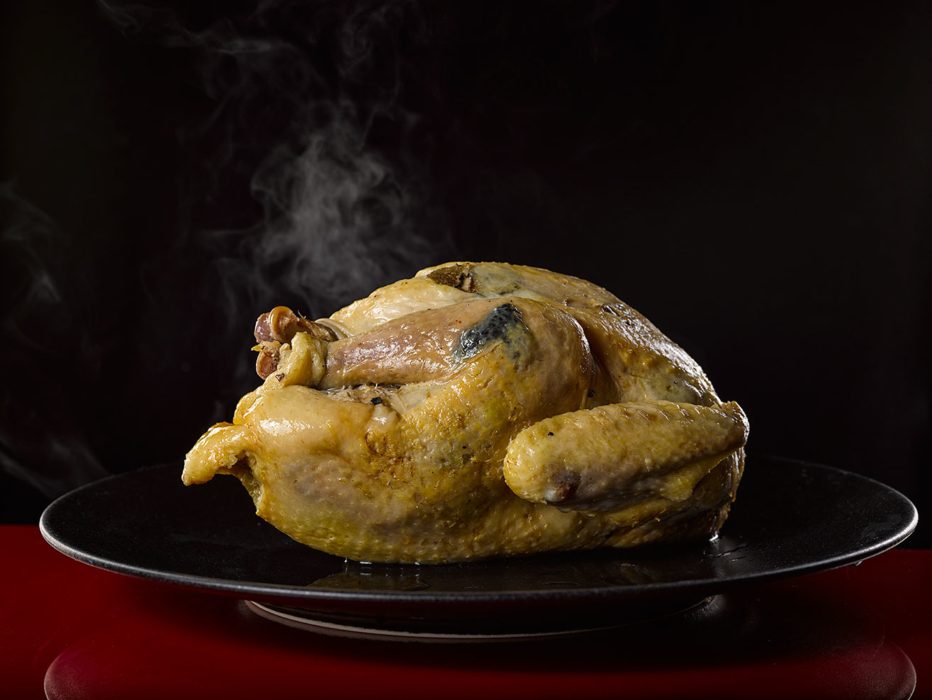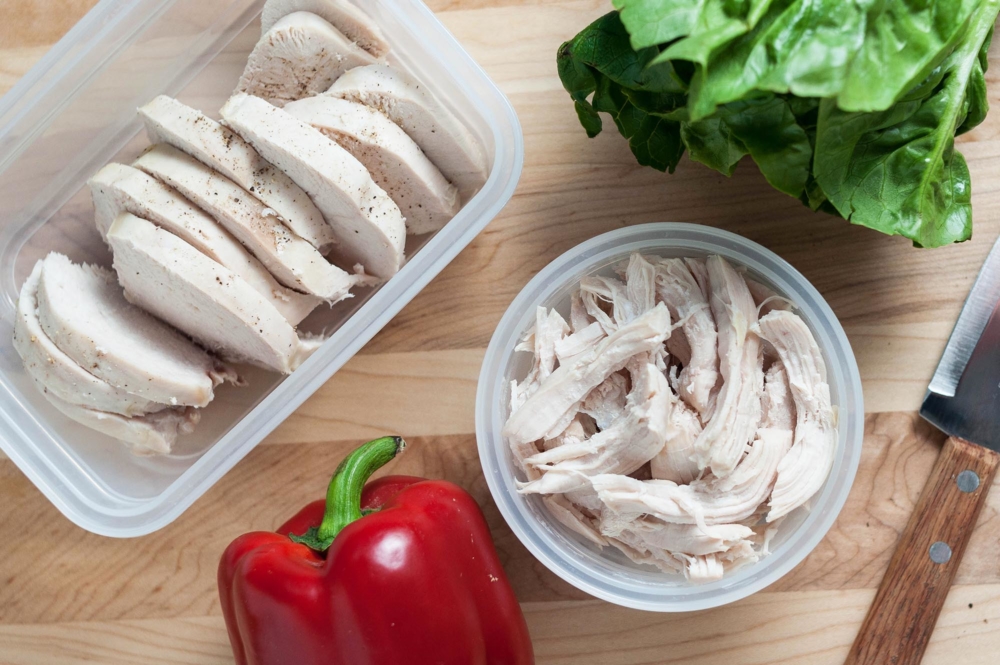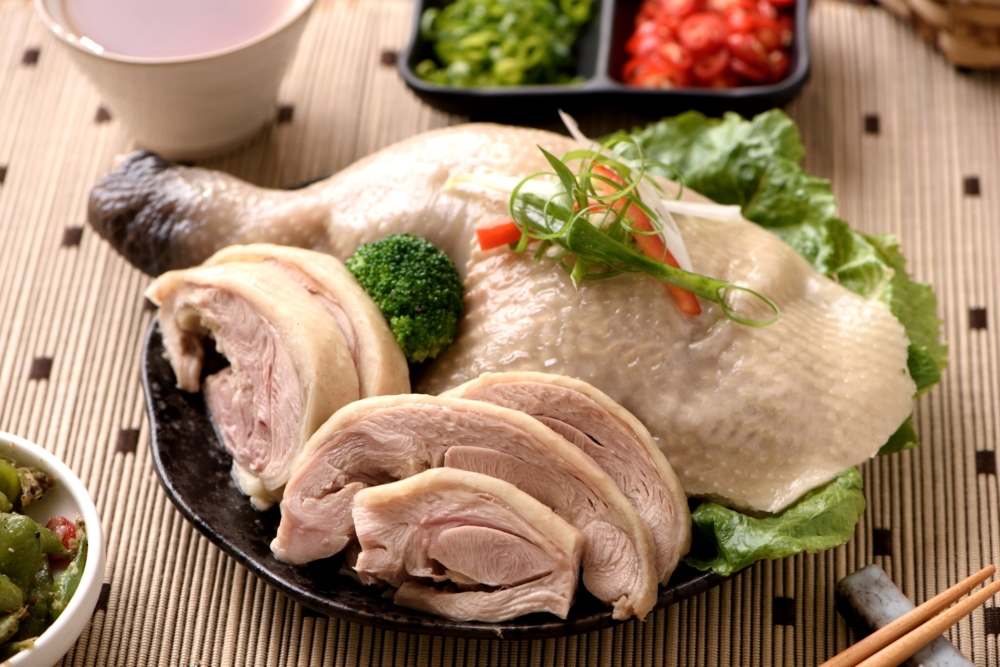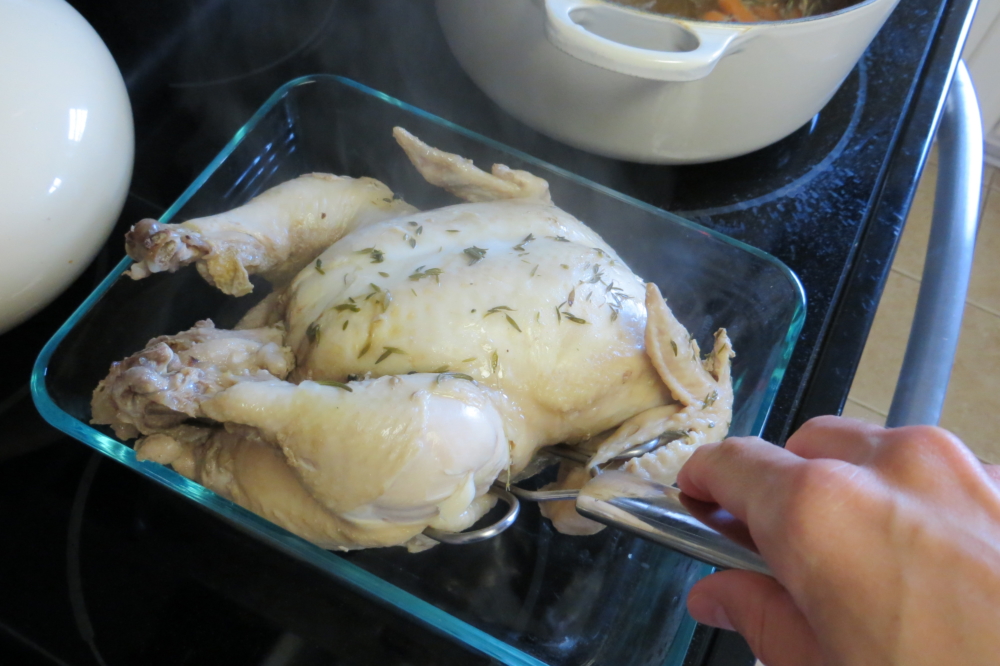Poultry is the basis of the diet of many families. However, not every housewife knows how many calories in boiled chicken, and how it is useful. We find out how much dietary meat is supposed to be eaten per day, what vitamins and minerals it contains.
Material Content:
Chemical composition and nutritional value
The chemical formula of the product includes:
- fats
- proteins
- carbohydrates;
- ash;
- water;
- vitamins
- amino acids;
- minerals.
Among amino acids, the following substances predominate:
- glutamine (4.087 g);
- aspartic (2.432 g);
- lysine (2.318 g);
- leucine (2.048 g).
A special role is played by glycine, methionine and arginine, which make up the important substance creatine. It increases stamina, adds strength, reduces fatigue.
Boiled chicken includes a lot of protein, which is well absorbed by the stomach and is important for athletes who build muscle. The nutritional value of the product is 693 kJ. 100 grams contain 36% protein, 8% fat and 0% carbohydrates (from the daily allowance). The chicken contains 75.46 g of water and 0.96 g of ash. There is no sugar, fiber or starch in dietary meat. The amount of cholesterol is 70 mg.
Calorie content and boju boiled chicken
The calorie content of the chicken, which was boiled, is 180-200 kcal (per 100 g). If you cook meat with skin, the figure will increase to 218 kcal.
Per 100 g of product:
- 24.17 g of protein;
- 7.61 g of fat;
- 0.64 g of carbohydrates.
Each piece of chicken carcass has its own calorie content:
- boiled chicken breast - 115 kcal;
- ham - 160-180 kcal;
- hip - 180-210 kcal;
- wings - 180-190 kcal.
A sufficient amount of protein and the absence of carbohydrates allow you to use the product as the main ingredient for the preparation of dietary dishes.To reduce the calorie content of boiled chicken, it is advised:
- remove skin from meat and remove fat;
- pour the broth 15-20 minutes after the appearance of bubbles, and then boil it again;
- serve chicken with fresh tomatoes, cucumbers, sweet peppers and parsley to speed up the absorption of fats;
- Do not use additional additives in the form of sauces and salted spices.
If possible, it is advised to buy a chicken breast, and not a chicken leg.
The content of vitamins and minerals
Cooked chicken contains the following vitamins:
- BUT;
- D;
- D3;
- E;
- K;
- IN 1;
- IN 2;
- B4;
- B5;
- B6;
- AT 12;
- PP
Most in the product is vitamin B4 (72.4 mg). Deficiency of choline in the body leads to increased irritability, a decrease in mental abilities and to such serious diseases as gastrointestinal tract pathologies and sexual dysfunctions.
There are vital elements in the product:
- sodium;
- phosphorus;
- potassium;
- calcium;
- iron;
- magnesium;
- manganese;
- zinc.
Most boiled chicken has potassium (180 mg) and phosphorus (150 mg). A lack of these substances leads to drowsiness, muscle pain, heart rhythm disturbance and hypotension. Nutrients maintain fluid balance in the body, regulate muscle activity and coordinate heart rhythm. They are sources of energy and support all bioprocesses in the body.
Daily consumption of poultry meat
Chicken meat is much more nutritious than, for example, beef. He is advised to eat those who want to normalize weight. However, for the body to function well, not only poultry should be included in the diet, but also rabbit, pork meat.
Experts do not recommend eating more than 210-220 g per day. This is the optimal amount for an adult who is fond of sports or is busy with physical labor.
Children under 3 years old are enough 75 g of chicken meat per day. Boys and girls aged 4 to 7 years can eat up to 100-120 g of product. The same amount will suit an elderly person.
The beneficial properties of chicken
Chicken after boiling is useful not only as an element of dietary nutrition, but also as a means to combat the following pathologies:
- neurosis;
- bad sleep;
- general weakness;
- Depression
- vitamin deficiency.
Meat without skin is necessary for children. It has a positive effect on the body of the child, namely:
- improves hair structure;
- strengthens nails and bones;
- normalizes the process of blood renewal;
- improves the digestive tract;
- contributes to normal mental development;
- restores strength and energy after the flu;
- relieves stress.
Thus, dietary meat is recommended for the following groups of people:
- kids;
- schoolchildren;
- older women and men;
- pregnant
- Athletes
- diabetics.
It is worth considering that a bird, even cooked without skin, can cause a negative reaction, and its uncontrolled use provokes an increase in the level of bad cholesterol. Therefore, it is important to give preference to rural meat, because the purchased product may contain antibiotics and hormones. To reduce the risk of poisoning by harmful substances, you need to choose the right chicken and apply in practice the advice of nutritionists.
















